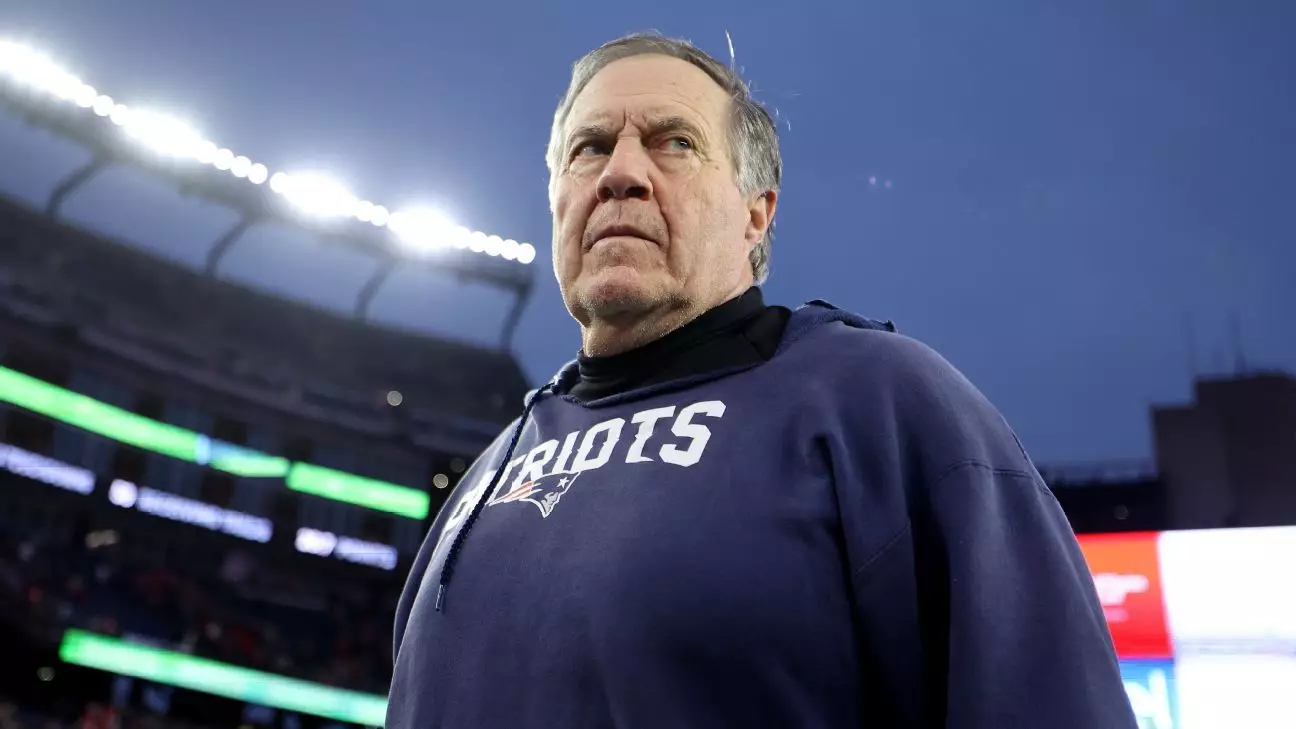Bill Belichick’s recent transition from a celebrated head coach to a burgeoning media personality raises intriguing questions about the role of former athletes and coaches in the broadcasting landscape. Known for his stoic demeanor and unparalleled success with the New England Patriots—where he secured six Super Bowl titles—the 72-year-old has embraced various media opportunities that were rarely associated with his earlier career. Despite his new foray into this realm, Belichick remains fundamentally a coach at heart, underscoring a complex relationship between coaching, media engagement, and personal ambition.
The 2023 season marks a watershed moment in NFL history, as Belichick will not be on the Patriots’ sideline for the first time in nearly 25 years—an absence that feels almost surreal for fans and analysts alike. This unprecedented vacancy raises questions about the future of both Belichick and the franchise. According to insiders, Belichick is methodically weighing his options for a potential return to coaching in 2025. His criteria for a comeback? A suitable organization that shares his vision and values. Such selectivity paints a picture of a man who still carries the heart and passion of a coach while navigating the complexities of public life.
During the offseason, Belichick had opportunities to rejoin teams in various capacities, including defensive coordinator positions with teams like the San Francisco 49ers and the Los Angeles Rams. However, he opted to explore new avenues that extend beyond traditional coaching roles. As he embarks on this new chapter, Belichick’s involvement as a strategic adviser for the 33rd Team and his appearances on various media platforms, including “The Pat McAfee Show” and “Inside the NFL,” showcase a strategic approach to understanding football from a different perspective. This shift from sideline to screen not only allows him to remain engaged with football but also to redefine what it means to be a coach in an increasingly media-centric world.
Belichick’s newfound media presence, while surprising to some, reflects a broader trend in sports where former coaches and players amplify their voices beyond the field. He will be sharing insights and analyses through various platforms like YouTube TV, tapping into a different audience. This commitment to media exploration could very well serve as a means for him to maintain his connections within the league, keeping his analytical mind sharp while observing NFL trends and player dynamics. His scheduled appearances, including a unique collaboration with Peyton Manning through a weekly show analyzing “Monday Night Football” matchups, have already established him as a significant figure in sports commentary.
Despite these exciting new ventures, Belichick’s pivot to media could be a double-edged sword. While it may enhance his brand and offer immediate gratification, there’s the risk of overshadowing his extensive coaching legacy. Belichick has often been characterized by a degree of disdain for media interaction; his sudden embrace of it raises eyebrows among his staunchest fans and critics alike. The fear ratchets up that his media persona might dilute the profound respect he has cultivated as a coaching giant. However, should he find success in this new arena, Belichick has a unique opportunity to redefine his legacy and influence future generations of football professionals.
As we look ahead, Belichick’s narrative is multi-faceted. On one hand, he continues to hold the remarkable achievements of his coaching past close to his heart. On the other, he is navigating the uncharted waters of media engagement with a blend of curiosity and his traditional approach to meticulous preparation. The coming years will undoubtedly reveal whether he can maintain his legendary status while establishing a new career in an industry that thrives on charisma and public appreciation. In the overarching tapestry of NFL history, the next chapter of Bill Belichick will be one worth observing, both on and off the field.


Leave a Reply